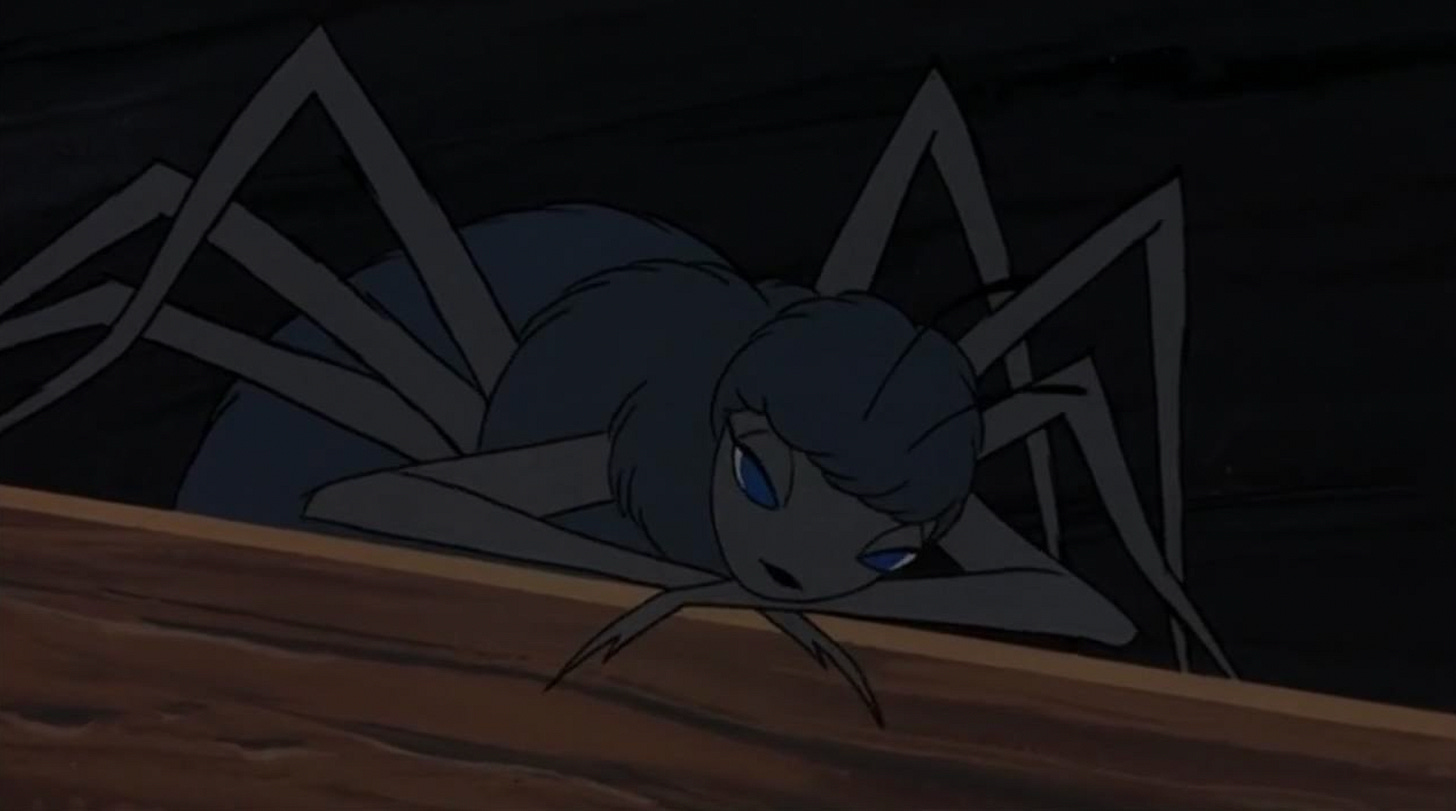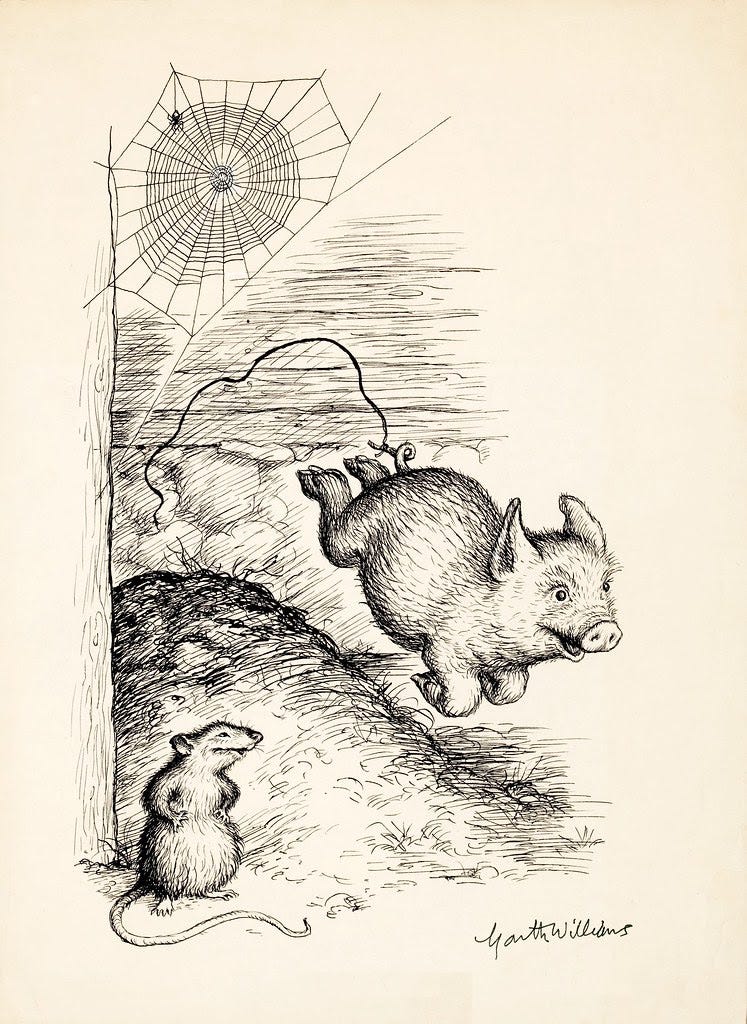"A Quietly Unsettling Meditation on Need, Decay, and Domestic Isolation"
Poems, spiders and domestic failings.
I started Trainwrecks to start conversations around things we feel shame for, in the hope of expelling some of that rot. Shame, to me, flashes up in the most unusual, mundane ways. There are little reminders everywhere that my psyche registers and collects as evidence that I truly am a terrible person, and it won’t be long before everyone else finds out and leaves me.
My number one shame inducer is the constant list of domestic chores and duties that need to be done: vacuuming, mopping, washing — putting it into the washing machine, hanging it on the line, waiting three days for it to dry because I didn't check the weather forecast. Bringing the washing in, folding the washing, putting it away.
My failure to keep up with simple domestic duties makes me feel like I’m failing at the most basic level. This spirals into thoughts about failing to be a desirable and decent woman. It’s one of the reasons I believe I shouldn’t have children or be somebody's wife. It makes me think I’ll never own my own home because I can’t even maintain my <100m² rental. It makes me feel like an incompetent adult.
It takes me a while to get to the bottom of my emotional discomfort. I struggle to articulate proper sentences describing emotions or the cause of pain. For a long time, I’ve written poems and mostly kept them to myself, until I went back to university and was forced to read them out loud to a classroom of writers and lecturers to be critiqued.
The reason I write poems, and the reason I enjoy writing poems, is that I can say what I feel without directly saying it — then work backwards. A lot of the time, I seem to be talking about being lonely (even though I’d rather die than outright admit it).
On Sunday, I did something I haven’t done in a very long time. I read one of my poems at Common Ground poetry night. My hands shook so much and my voice was wavering, which felt very embarrassing. But I like what I wrote, and I like what it expresses, so I’ve included it in this newsletter.
I asked ChatGPT what it thought of my poem and it said: “Your poem is a quietly unsettling meditation on need, decay, and domestic isolation…” And I actually think that sums it up nicely.
I confide in the spider
who lives under the dome
of my shower.For the longest time —
it’s been you and me.
And the ants.The silverfish
that flicker
in the white soup bowl.And the wasps
who nest
in the cracked ring foundation.I worry,
because I don’t know any stories
of spiders that have happy endings.Have you heard of Charlotte?
I’m Charlotte.She birthed a thousand spiders
in a barn,
then died.And I need you —
because the dust is relentless.And the horse flies
and carpet moths,
white butterflies
and bush ants
keep blowing in.
I talked to my psychologist about my domestic failures. Specifically, I cried to her about how I’d watched from my window as my clothes blew off the washing line in a storm, and that confirmed that I was a pathetic, worthless person.
All she had to say about that was that I don’t find chores mentally rewarding or stimulating, so my brain doesn’t generate much motivation to do them. It’s not a moral failing; it’s a cognitive misalignment between the task and the way my reward system is wired. I don’t really like it, so I don’t want to do it… and that’s that.
If you enjoyed this or you’re thinking about writing poems, feel free to share this, leave a comment, talk to me about it or just sit with it. xx











"Trainwrecks" ... While I still don’t know the precise/entire cause-and-effect of my chronic anxiety and clinical depression, my daily cerebral turmoil mostly consists of a formidable combination of adverse childhood experience trauma, autism spectrum disorder and high sensitivity, with the ACE trauma in large part the result of my ASD and high sensitivity. I self-deprecatingly refer to it as my perfect storm of train wrecks.
More recently, I’ve discovered yet another and perhaps even more consequential coexistent psychological condition — “core shame” — that’s seriously complicating an already bad and borderline bearable cerebral-disorder combination.
A core shame diagnosis would help explain why, among its other debilitating traits, I’ve always felt oddly uncomfortable sharing my accomplishments with others, including those closest to me. And maybe explain my otherwise inexplicable almost-painful inability to accept compliments, which I had always attributed to extreme modesty.
It would also help explain why I have consistently felt unlovable. Largely due to ASD traits that rubbed against the grain of social normality thus were clearly unappreciated by others, my unlikability was for me confirmed. My avoidance of social interaction and even simple smiles at seemingly-interested females was undoubtedly misperceived as snobbery. The bitter irony was that I was actually feeling the opposite of conceit or even healthy self-image/-esteem. …
Such coexistent conditions, or multiple-train-wreck perfect storms, are real and cause great suffering. ACE abuse thus trauma, for example, is often inflicted upon ASD and/or highly sensitive children and teens by their normal or ‘neurotypical’ peers — thus resulting in immense and even debilitating self-hatred and shame — so why not at least acknowledge that consequential fact in a meaningfully constructive way?